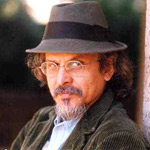Donald Crosby is Professor of Philosophy Emeritus at Colorado State University. We invited him to answer the question “What is Philosophy of Religion?” as part of our “Philosophers of Religion on Philosophy of Religion” series.
“What does your dad do?” This question was raised by a friend of my younger daughter when the friend was talking with her on the telephone. My daughter said, “He teaches philosophy at the state university.” The friend then raised an obvious question: “What’s philosophy?” “I don’t really know,” said my daughter. “I’ll ask my dad.” I had no ready terse answer to this difficult and much debated question, so I replied, “Thinking deeply about deep questions.” Philosophers have no corner on such questions, of course, but one class of questions they have addressed over the ages is the class of deeply probing religious questions—questions relating to religious outlooks, expressions, arguments, and practices. When philosophers address these questions, they are called philosophers of religion.




